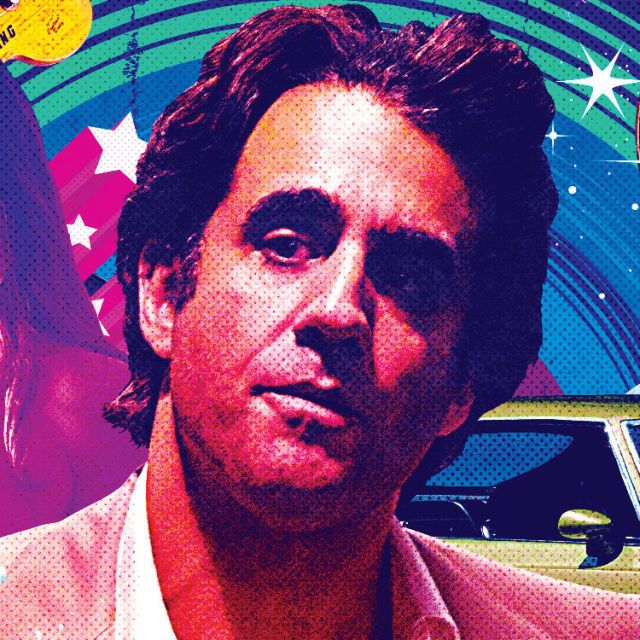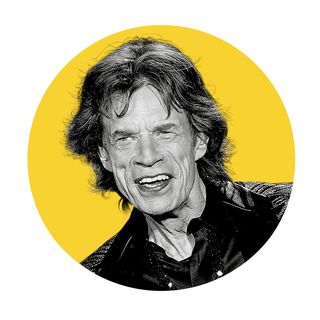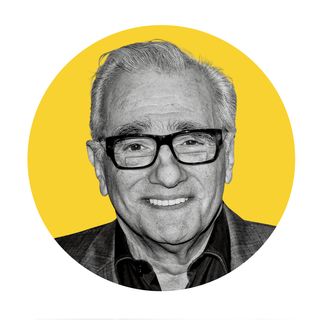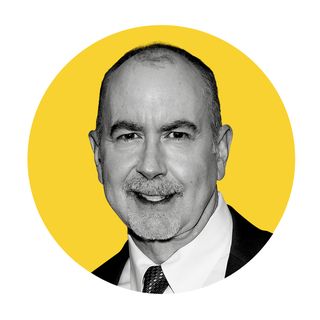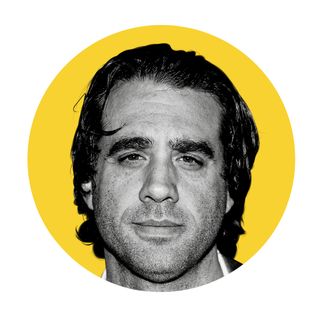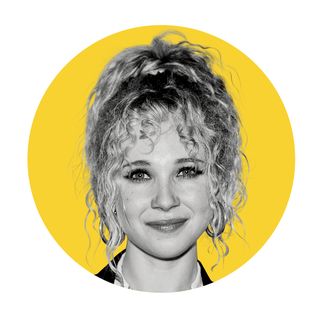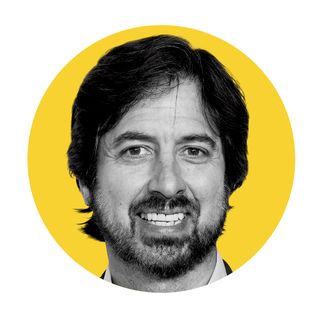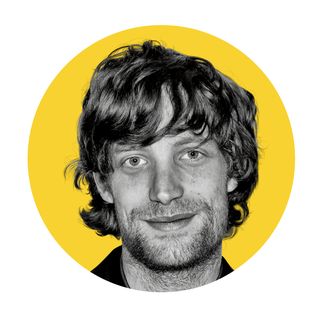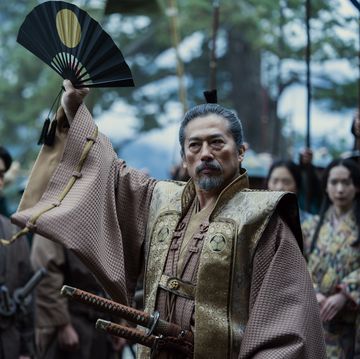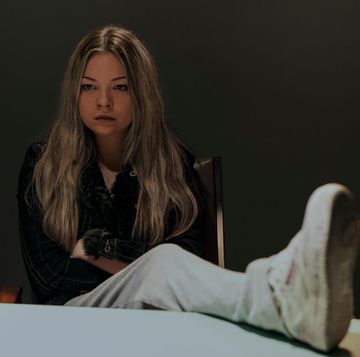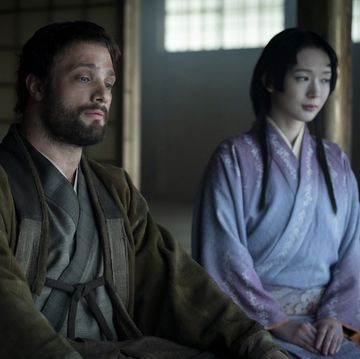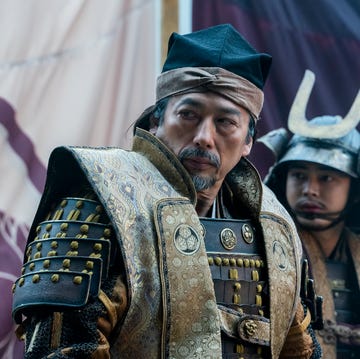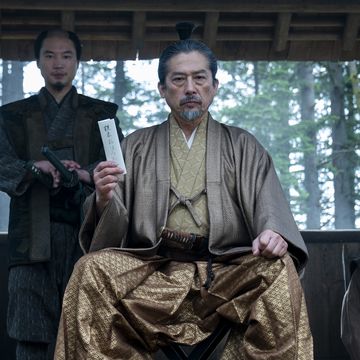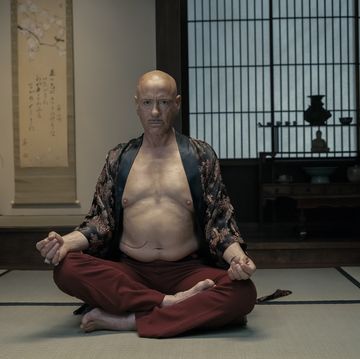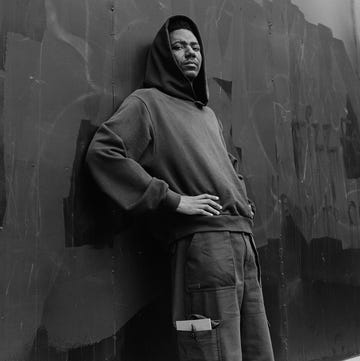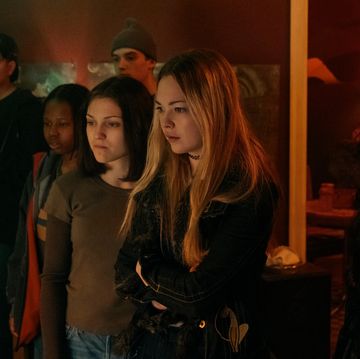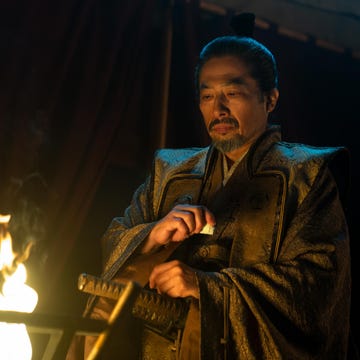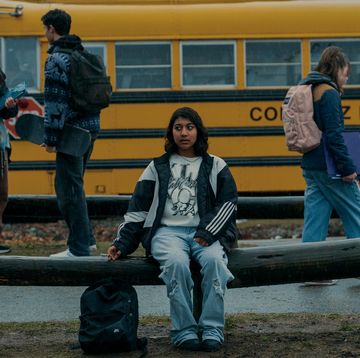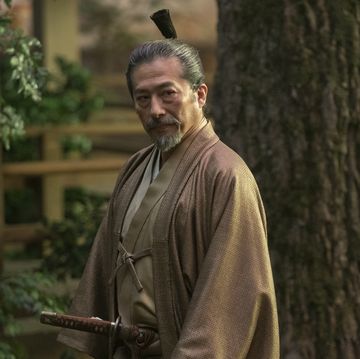Vinyl shouldn't work. The HBO series about the 1970s music industry (premiering February 14) should be buried under the myth-sized expectations that come with its benefactors. Instead, it's great. It's in lines like "Would you shut the fuck up? I'm trying to apologize!" It's in the camera, eyeing set pieces like a divine observer at a peep show, zooming in on the New York Dolls, Robert Plant's abs, performances that make music videos suddenly seem viable again. The show just moves, like the music that inspired Martin Scorsese when he was a kid. "I've always tried to give the audience what they want, and in return they made me stinking fucking rich," the main character, Richie, says in the pilot. Vinyl gives the people what they want and hopes they will return the favor. We talked to some of the cast and creators about how the show came to be.
MICK JAGGER, EXECUTIVE PRODUCER
It was a movie idea. I went to Marty and said that I'd like to do something that covers the actual inside of the record business, using Casino as shorthand.
[The industry] hadn't been portrayed really much at all at that point, but I thought it was interesting the way it worked and the crazy people who worked in it. Walter Yetnikoff used to run CBS, and there was Ahmet [Ertegun], who used to run Atlantic, then much sleazier people who ran smaller labels like Roulette—there were lots and lots of payola types of scandals throughout the whole of the record industry, a lot of shenanigans.
Sometimes I notice anachronisms in the language [of the scripts]: "Iconic." If people say things like that, I say, "Ehhh, I don't think I would have said that in 1973."
Andy [Warhol] liked to commodify himself—that was his goal. Everyone wants to commodify themselves now. But none of the artists [on] are like me. None of the executives are like me. It's fictional.
MARTIN SCORSESE, DIRECTOR & EXECUTIVE PRODUCER
I met Mick for the first time in 1976, and [twenty years later] he asked if I would make a film on the rock 'n' roll business. In 2008, I had a phone call late one night with Terry Winter and told him that Mick and I had a project that was this roller-coaster ride through rock 'n' roll history that spanned about 40 years. The idea then became to make it into a series and focus on 1973, around the time punk and hip-hop were born. And it was the year I made Mean Streets.
I grew up in the city. We didn't ride around in a car, hearing music coming out of the radio on summer nights. We heard it echoing through the streets.
In the late '70s, the music business was getting big and bloated, and those records by the Clash and the Ramones and the Sex Pistols and Elvis Costello just cut through all that. They laid down a challenge to the older bands, and that includes the Stones—I suppose that Some Girls was a response to the challenge of punk. And, of course, it started here in New York with the Dolls. So that's where Vinyl starts.
TERENCE WINTER, SHOWRUNNER & EXECUTIVE PRODUCER
[It took] two seconds. We were in Marty's house: me, Marty, Mick, and HBO. We said, "We want to do a show set in the '70s about rock 'n' roll." And they said, "Great."
Usually, you use special effects to make things look better. We actually need them to make things look worse. And it's not cheap.
We have pigeons out here, too. You get three pigeons who can act and you get them in, and they just act like pigeons.
At one point, there was an episode where Bobby [Cannavale] didn't do a lot of coke… . He was like, "It's nice taking a break."
It's sort of a powdered baby laxative. If you're doing one scene and it calls for you to do a line of coke and you do the scene ten times, that's a lot of baby laxative.
BOBBY CANNAVALE, ACTOR; PLAYS RICHIE, HEAD OF AMERICAN CENTURY MUSIC
It's not baby laxative! It's milk powder. If it were baby laxative, I'd be shitting myself all the time.
We'd be shooting on Central Park South and looking out the window, and Marty'd go, "Oh boy, I was just thinking about the time we shot that scene [in] with Bob [De Niro] where he takes the shot at the guy when he's giving the speech." Or he would tell me about, like, going with his friends and finding bodies that were just dumped out of cars into that alley from Jersey Street.
[Bruce Springsteen is] my favorite. I'm from Jersey, man. In, like, episode six, there's a scene at Max's Kansas City where Bruce opens for Bob Marley. Later, another character brings [Bruce] up and I don't act that interested. It was a hard scene for me. It was like doing a scene where I say the Yankees suck or something.
[Richie is from] the template that goes back to the ancient Greeks and to Shakespeare: the fallen king, just trying to do anything he can to hold on to his kingdom.
OLIVIA WILDE ACTOR; PLAYS DEVON, FORMER MEMBER OF WARHOL'S FACTORY AND RICHIE'S WIFE
I gave birth and was on the set of the pilot four weeks later. You have that confidence that you just produced a human being and therefore you're capable of anything. And so I walked onto that set like, "All right, Marty, let's do this."
Devon, as originally written, was not very developed. We were shooting the scene where I find Bobby drunk in the den. The original scene was that I walked in, saw what he was doing, and walked right out. I said, "Bobby, Marty, I'm going to try something a little different," and they said, "Great." So I spat in [Bobby's] face.
There was this silence after cut that felt interminably long. I thought, "Okay, [Marty] either hates this and I'm fired or he likes it." And finally, he said, "Now she's somebody."
That was one of the most gratifying moments of my career.
JUNO TEMPLE, ACTOR; PLAYS JAMIE, A&R ASSISTANT AT AMERICAN CENTURY
My dad's [Julien Temple, filmmaker and Sex Pistols collaborator] got a big history with punk music. You know, "the sound of a revolution."
I put myself on tape and tried to look as '70s as possible with what I had in my suitcase. I wore an original Sex Pistols T-shirt that has Minnie and Mickey Mouse, but they're fucking and it has the anarchy symbol.
I kind of wish I'd been a child in 1973.
RAY ROMANO, ACTOR; PLAYS ZAK, PARTNER AT AMERICAN CENTURY
If you saw an [actor] who was a broad character for nine years on a show in your living room every night, seeing him in a dramatic role takes an adjustment. Which is why one of the luckiest things is that when I auditioned for Martin Scorsese, he had never heard of me.
His casting director said, "Listen, Marty likes what he saw, and he's also never heard of him or seen him before." And my agent actually had to ask her as a follow-up question, like, "Do you mean he's never seen the show or he's never seen …" And she said, "He's never heard of or seen Ray."
I don't want to sound incredulous, because that's a little pompous of me to say "How could he have not heard of me?" But we were a little baffled by it.
It's not Ray Barone. It's gritty. I had to do a sex scene, too, so that may turn everybody off. This is my warning: Episode seven, just go bowling.
JAMES JAGGER, ACTOR; PLAYS KIP, LEAD SINGER OF PUNK BAND THE NASTY BITS
I'd just started getting back into acting [after touring with my band since 2011] and [my manager] sent me the sides, being like, "It's Marty, Terence, and your dad's thing." And I was like, "Hey, hold on a minute." I had read the script as a film when I was, like, 15 or something.
I had to audition on tape, then I came to New York to audition. And then I had to do what I think was just the dickhead test: I had to go sit down with Marty for a half hour, and if I was a massive knob, then he would've said, "No, I'm not working with that guy."
I really don't give a fuck what people think about my upbringing; I've been Mick Jagger's son more than I've been my own person. I don't really give a fuck if someone's a really big Rolling Stones fan and they're being weird toward me. I'm very proud of my dad and his achievements, and if someone wants to take a photo of me 'cause I'm his son, I don't give a fuck. It doesn't make me feel like a genius, but I'm more than happy to play that role.
There are quite a few things in New York [from the '70s] that are still there. You can go into John Varvatos and lick the wall if you want. Might still have a bit of CBGB on it.
MICK JAGGER
Nostalgia is a funny word. That means you wistfully, rather regretfully, wish you were there. And that's not what I think when I think about [the '70s]. I just think about some funny stories.
